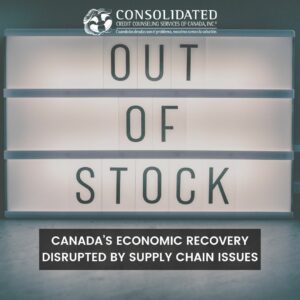Over the last couple of years, we’ve been dealing with a lot of turmoil around the world. Many of us are feeling anxious about the state of the economy and whether we’re heading for a recession. Which begs the question, what is a recession? How can we protect our finances if one should happen?
A recession is defined as two consecutive quarters of negative economic growth. What does that mean in practical terms? It usually means there’s a decrease in overall spending, which can lead to job loss and reduced wages. In other words, many are feeling economic pressure which can affect livelihood.
A recession is never ideal, but do play an important part in the overall economy. By being prepared and making smart choices, you’ll have an easier time weathering any economic storm. Now is a good time to start saving money. Make sure you have an emergency fund to cover unexpected expenses. If you’re already in debt, try to pay it off as quickly as possible. With all that covered, you’ll be in a better position to handle any economic downturn.
Establish an emergency fund
One of the best ways to prepare for a recession is to establish an emergency fund. This is a savings account that you can use to cover your living expenses if you lose your job or experience a drop in income. Ideally, you should aim to have three to six months of living expenses saved up. This may seem like a lot of money, but it will give you peace of mind knowing you’re prepared for anything.
Parallel to this is to be mindful of your spending. You may not be able to control whether there’s a recession, but you can control how much money you’re spending. Try to limit your non-essential purchases and focus on saving as much money as possible. This will help you weather the storm if the economy does take a turn for the worse.
Consider doing a balance transfer to avoid high-interest rates
Unfortunately, tough economic times can often lead to financial difficulties. One way to protect your finances during a recession is to balance your budget and avoid taking on new debt. Especially, high-interest debt.
If you have existing debt, now is also a good time to consider a balance transfer to a card or other debt option with a lower interest rate. This can help see cash flow during tough times.
Also, take a close look at your credit cards and make sure you’re not carrying a balance that you can’t afford to pay off. If you’re only making the minimum payment each month, you’re likely paying more in interest than you need to. When you see the huge difference in how fast your balance goes down from putting even just a little more than the minimum you’ll see why the little extra is worthwhile.
Create and follow a budget
During a downturn in the economy, many people lose their jobs or see their hours reduced. One of the best ways to mitigate the effects of a job loss is to create and follow a budget. By carefully tracking your income and expenses beforehand, you’ll have a better idea of how to adjust your finances if you do lose your job.
Additionally, it’s important to keep an eye on your job security during a recession. If you think there’s a chance you could lose your job, start taking precautions now so you’ll be as prepared as possible.
Being proactive is your best safety measure
No one likes the idea of a recession, but the truth is they happen from time to time. To offset the effects of these times, it’s important to be proactive about protecting your finances. There are both short-term and long-term things you can do to safeguard your money during tough economic times.
In the short term, one of the best things you can do is start following a more frugal lifestyle. This means cutting back on unnecessary expenses and being mindful of where you’re spending your money. It may not be the most fun way to live, but it can help you save up some cash in case you experience a financial setback.
In the long term, it’s important to focus on building up your personal finance skills. This includes things like learning how to budget, investing wisely, and building up an emergency fund. These are all essential skills for weathering a recession (or any other financial adversity).
Protect your portfolio
A recession can be a tough time for even the savviest investor. Stock prices plummet, businesses close their doors, and people lose their jobs. With a little financial planning, you can come out on the other side in good shape.
It’s important to have a financial plan in place. This plan should include savings goals, investment strategies, and debt repayment plans. It’s also important to diversify your portfolio. This means investing in a variety of assets, including stocks, bonds, and cash. By diversifying your investments, you’ll be less likely to experience steep losses if the stock market takes a downturn.
Get different streams of liquid funds
It’s important to have different streams of liquid funds available to you during a recession This means having cash on hand, as well as funds in a savings account or investment account that can be easily accessed if needed. This will give you some flexibility if you suddenly lose your income or need to make an unexpected purchase.
Keep informed
During a recession, it’s particularly important to stay informed about all things finance related.
Personally, you’ll want to keep an eye on your credit score, as it may be more difficult to get approved for new lines of credit.
It’s also a good idea to stay informed about interest rates and other changes in the economy in general. Sometimes a recession is the best time to consolidate or refinance your debt. Interest rates have been known to dip during economic downturns, so this can be a good time to lock in a lower rate. Just be sure to do your research and compare offers from multiple lenders before making a decision.
Final Thoughts
The bottom line is that a recession doesn’t have to spell disaster for your finances. With a little planning and preparation, you can make it through unscathed. Don’t wait until tough times hit to start taking steps to protect your money!
Follow these tips for recession-proofing your finances and stay ahead of the curve.
If you’re already struggling with your finances, the trained Credit Counsellors at Consolidated Credit Canada can help. To get started on your path to getting back on track contact us today.




